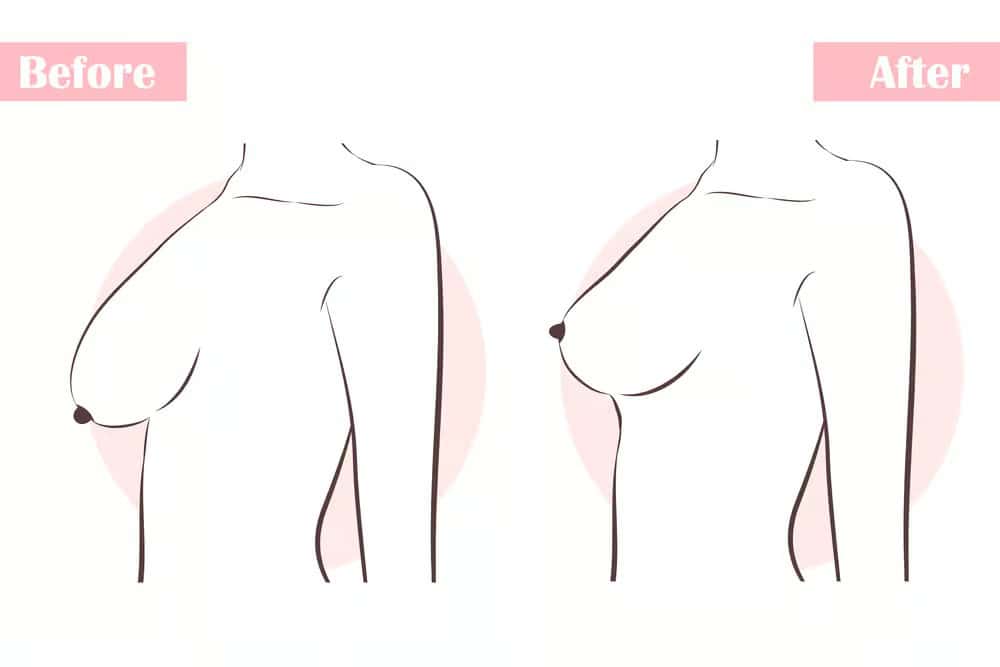Breast augmentation is one of the most sought-after cosmetic procedures in the world, delivering life-changing results for women who want to enhance their shape, feel more confident, or correct asymmetry. In 2023, nearly 1.9 million breast augmentation procedures were performed globally, making it the second most-performed surgical cosmetic procedure after liposuction. But, like any surgical procedure, it carries the risk of complications. One of the most common and concerning issues that can arise after breast augmentation is capsular contracture—a condition where the scar tissue that naturally forms around the implant becomes abnormally hard, tight, or misshapen.
This condition can be both physically uncomfortable and emotionally distressing. Whether you’re experiencing changes in the look or feel of your breast implants or simply want to be informed, it’s important to recognize the signs early. At the Julian Institute of Plastic Surgery, we have extensive experience identifying and treating capsular contracture with surgical precision and aesthetic care. Our goal is to provide you with accurate, detailed information so that you know what to look for—and what to do if something doesn’t feel right.
What Is an Encapsulated Breast Implant?
When we talk about an encapsulated breast implant, we’re referring to a situation where the body forms a fibrous capsule around the implant that begins to contract or harden. This is a condition known as capsular contracture. It’s not uncommon for the body to form a capsule; in fact, it’s a normal part of the healing process. The issue arises when that capsule thickens, tightens, and changes the shape, feel, or placement of the implant.
Some women experience mild symptoms, while others deal with significant discomfort, distortion, or firmness in the breast. In advanced cases, capsular contracture can lead to breast pain or visibly unnatural results. Not all hardening around implants indicates capsular contracture, which is why an expert evaluation is critical to determine whether the implant is simply settling—or whether a revision may be necessary.
Common Symptoms That Could Signal a Problem
If you have breast implants, you know what your body typically feels like. Any sudden or gradual change in sensation, firmness, or appearance could indicate a problem worth checking. There are several signs that may point to capsular contracture, especially if they become progressively worse over time.
One of the most noticeable signs is a hardening of the breast. The implant may feel unnaturally firm to the touch or even painful in certain positions. You may also see a change in breast shape, with one side appearing rounder, higher, or distorted. In some cases, the implant may shift upward or become immobile, indicating that the capsule has become too tight around it. Pain or sensitivity when lying down or performing certain activities can also signal that the tissue is constricting the implant.
The Baker Grading System: Measuring Severity
Plastic surgeons often use the Baker grading system to assess the severity of capsular contracture. This scale ranges from Grade I, where the breast feels soft and looks natural, to Grade IV, where the breast feels hard, looks abnormal, and causes pain.
Grades II through IV involve increasing firmness, visibility of the implant edges, and discomfort. At Julian Institute of Plastic Surgery, we use this system to evaluate patient concerns and determine the most appropriate treatment approach. Early signs that fall within Grade II or III may still allow for non-surgical intervention in some cases, while Grade IV often requires surgical correction.
Why Does Capsular Contracture Happen?
The exact cause of capsular contracture isn’t fully understood, but research points to several potential factors. These include low-grade infections, hematomas, or excess scar tissue. It may also be linked to the placement of the implant, the type of implant surface, or even the presence of biofilm—a thin layer of bacteria that can form on the implant and trigger an inflammatory response.
Other contributors may include previous surgeries, radiation therapy, or a history of excessive scar formation. While you can’t always prevent this complication, working with a highly skilled surgeon, following aftercare instructions, and attending follow-up appointments can significantly reduce the risk.
When to See a Plastic Surgeon
Not every change in your breasts means you have capsular contracture, but any persistent firmness, discomfort, or shape irregularity should be evaluated. Some patients assume they need to live with these symptoms, especially if they’ve been told everything looked fine at a previous visit. But if your breast implants no longer feel or look the way they did after surgery, a consultation is the right next step.
At the Julian Institute of Plastic Surgery, we listen carefully to your concerns, examine both the aesthetic and functional aspects of your implants, and use imaging when necessary to confirm what’s happening internally. You don’t have to wait until symptoms are severe—early evaluation can lead to easier solutions and peace of mind.
What to Expect During an Evaluation
Your consultation will include a thorough medical history and physical exam. We’ll look at symmetry, placement, firmness, and how your implants respond to touch and movement. We may recommend diagnostic imaging like an ultrasound or MRI if additional information is needed.
We’ll also review the history of your breast surgery—when it was done, what type of implants were used, whether you had them placed over or under the muscle, and any previous complications. This background helps us determine whether what you’re experiencing fits the clinical picture of capsular contracture or another issue, such as rippling, implant rotation, or natural tissue thinning.
Treatment Options for Capsular Contracture
Treatment depends on the severity of the condition. For early-stage capsular contracture, some patients benefit from massage, ultrasound therapy, or medications that reduce inflammation. However, in moderate to severe cases, surgery is often the most effective option.
Surgical treatment may involve a capsulectomy (removal of the scar tissue) or a capsulotomy (releasing the scar tissue to allow more space for the implant). In some cases, it may be appropriate to replace the implant or change the implant pocket to reduce the risk of recurrence. At the Julian Institute of Plastic Surgery, we also consider advanced techniques such as using acellular dermal matrices or switching implant types when medically appropriate.
Our approach prioritizes both function and aesthetics. We want you to feel comfortable and confident with the result—not just relieved of discomfort but happy with the way your breasts look and move after the correction.
Recovery and What to Expect After Revision Surgery
Recovery after revision surgery will depend on the extent of the procedure, but most patients return to light activities within a few days and resume normal routines in about two weeks. Swelling and bruising are common but manageable with post-operative care.
We monitor our patients closely in the weeks and months following surgery, with a focus on preventing recurrence. You’ll receive personalized care instructions, and we’ll be here to support you through the entire healing process. Our patients often report a significant improvement in both comfort and confidence once their symptoms have been addressed.
Can You Prevent It from Happening Again?
Although capsular contracture cannot always be prevented, there are steps you can take to reduce the likelihood of it returning. Choosing a board-certified plastic surgeon who has deep experience with revision cases is one of the most important steps. The surgical technique used, implant selection, and sterile operating environment all matter.
At the Julian Institute of Plastic Surgery, we take extra precautions to prevent complications. Our surgical protocols are designed to minimize bacterial exposure and inflammation, which play a key role in triggering the condition. If you’re returning for a revision, we’ll also explore long-term strategies that fit your lifestyle and body, ensuring the highest level of safety moving forward.
Schedule a Consultation to Get Personalized Care
Take the Next Step Toward Relief and Confidence
If you suspect you may be dealing with an encapsulated breast implant, don’t wait for the problem to worsen. At Julian Institute of Plastic Surgery, we combine surgical excellence with compassionate, patient-focused care. We take the time to assess your symptoms, answer your questions, and offer real solutions tailored to your body and goals. Schedule a consultation today and let us design a personalized treatment plan for you.






